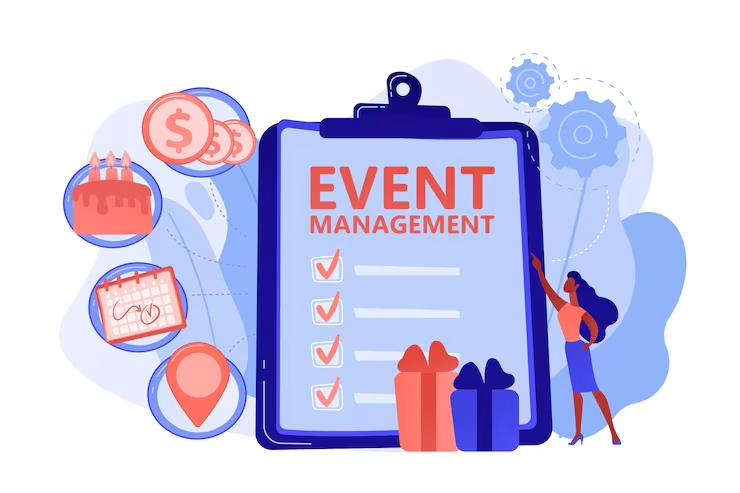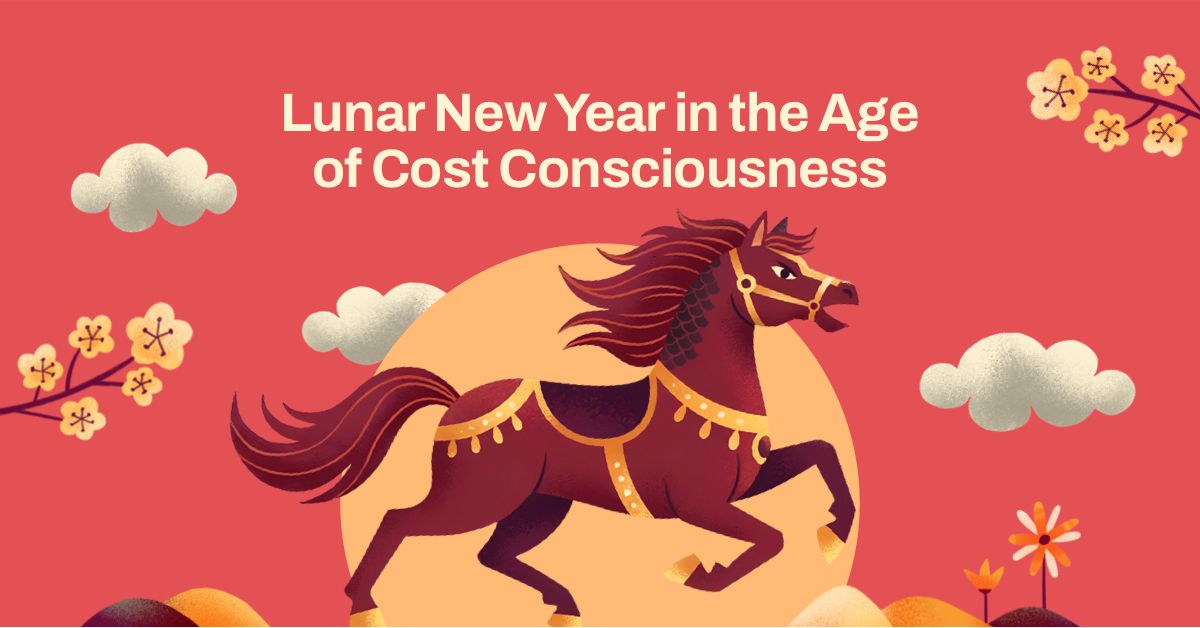Post-event survey sample questions you simply must ask

Have you ever poured months of hard work into planning an event, only to be left wondering what your guests really thought of it? Collecting honest, structured attendee feedback after an event isn’t just a good idea—it’s essential.
It tells you what went right, what needs work, and how you can improve future events. More importantly, it gives your actual attendees a voice. Because at the end of the day, no matter how polished your event planning was, the event experience truly counts.
What is a post-event survey?
A post-event survey is a structured set of survey questions sent to attendees shortly after the event. Its primary purpose is to gather valuable feedback about the event experience, from the event content and registration process to logistics, networking opportunities, and overall attendee satisfaction.
These surveys can be conducted via email, an event app, or even embedded within post-event communications. Like an online survey for customer satisfaction, a post-event survey is designed to capture quantitative data and open-ended questions in the attendees' own words, making it essential for evaluating event success.
It provides a detailed look at how well the event was received, what aspects resonated with your attendees, and what might need refinement for your next event.
Even if the event was virtual, hybrid, or in-person, the post-event survey remains a key tool for identifying strengths and uncovering opportunities to improve future events.
Why should you conduct post-event surveys?
Conducting a post-event survey offers numerous benefits that extend far beyond simple box-ticking. It allows you to:
- Measure success based on the perceptions of actual event attendees.
- Understand the effectiveness of your marketing efforts and event strategy.
- Identify gaps in the event experience, including technical aspects like audio and video quality.
- Learn how your event planning impacted attendee loyalty and engagement.
- Gather constructive feedback that supports better future planning.
Without a post-event survey, you're guessing what worked and what didn’t. Worse, you might miss out on valuable insights from attendees eager to share their opinions but never get the chance.
Furthermore, if you conducted a pre-event survey, comparing the before-and-after responses can help you understand whether your event met expectations, which is especially useful for planning future events.
Learn here why conducting surveys on smartphones is great and how to do it effectively
What kinds of events can you hold post-event surveys for?
No matter what type of event you’re hosting, there’s always value in gathering feedback. From large-scale corporate events to intimate workshops, a tailored post-event survey ensures you understand how your event was received and how to tailor future events for greater success.
Working with a panel research agency in Singapore can help you design targeted surveys that deliver meaningful insights into various events.
Conferences
Whether held in person, online, or as a hybrid event, conferences bring together a diverse mix of participants, event sponsors, speakers, panellists, and attendees. A post-conference survey can measure session relevance to networking opportunities and event impact.
Here are some sample survey themes for conferences:
- Relevance of topics discussed
- Speaker quality and presentation skills
- Usefulness of breakout sessions
- Ease of event registration
- Overall experience of the event venue (for in-person attendees) or virtual event experience
Public events
Public-facing events, such as exhibitions, festivals, or community open days, greatly benefit from post-event feedback. Understanding how the public responded to your event helps improve future iterations and enhances your marketing channels.
Key areas to evaluate:
- Clarity of post-event communications
- Attractiveness of event marketing
- Accessibility and facilities at the venue
- Safety measures and crowd control
- Overall event outcomes
Training events
Training events, workshops, and skill-building sessions require careful evaluation, as they are geared toward measurable learning outcomes. A post-event survey for training might focus on:
- Trainer effectiveness
- Clarity of instructional materials
- Applicability of skills taught
- Technical issues during online delivery
- Usefulness of hands-on activities
By deploying post-event survey questions tailored to each event type, you ensure your feedback is relevant, timely, and rich with actionable insights that can guide future event planning.
What are some post-event survey sample questions?
Creating effective post-event survey questions means choosing the right question types to suit your objectives. From identifying your target audience to evaluating the event's impact, each question format helps you gather different kinds of data.
Below, we explore the key question types you should consider when building your post-event survey and sample questions for each.
Demographics questions
Understanding who your actual event attendees are is the first step in evaluating how well your event met their needs. Demographic questions help you segment feedback and tailor future communications.
Post-event survey sample questions:
- What is your age group?
- What is your occupation?
- What industry do you work in?
- Have you attended our event before?
These questions offer critical insight into whether your event marketing reached the right target audience and help inform future event planning.
Matrix questions
Matrix questions group multiple items with the same response scale, making it easier for event attendees to rate aspects of the event experience efficiently.
Post-event survey sample questions:
Please rate the following aspects of the event:
- Quality of speakers
- Ease of event registration
- Usefulness of content
- Audio and video quality
- Venue cleanliness (for in-person events)
These are ideal for collecting structured feedback without overwhelming the respondent.
Multiple choice questions
Multiple choice questions provide a clear picture of participant preferences and behaviours. They're quick to answer and easy to analyse.
Post-event survey sample questions:
- What was your main reason for attending this event?
- Networking
- Learning
- Product discovery
- Guest speaker
- Other (please specify)
- How did you hear about this event?
- Social media
- Email newsletter
- Friend/colleague
- Our website
- Other
They also help identify which marketing channels were most effective.
Net promoter score questions
Net Promoter Score (NPS) measures attendee loyalty by asking how likely someone is to recommend your event to others. It’s one of the most important indicators of event success.
Post-event survey sample question:
- On a scale of 0–10, based on your experience, how likely are you to encourage others to attend a similar event in the future?
This single question delivers quantitative data and can be followed by an open-ended question asking, “Why did you give that score?” for context.
Open-ended questions
Open-ended questions allow attendees to answer in their own words, revealing deeper insights and emotions that multiple-choice formats might miss.
Post-event survey sample questions:
- What did you enjoy most about the event?
- What could we improve for the next event?
- Were there any topics or speakers you felt were missing?
- Are there any other comments you’d like to share?
These are key to uncovering constructive feedback and identifying elements that stood out—or fell short.
Closed-ended questions
Unlike open-ended questions, closed-ended questions require a simple “yes,” “no,” or specific-choice answer, perfect for statistical analysis.
Post-event survey sample questions:
- Was this your first time attending this type of event?
- Yes
- No
- Did you find the event communications clear?
- Yes
- No
- Would you attend a similar event again?
- Yes
- No
They are particularly useful when measuring preferences at scale.
Likert scales
Likert scales are widely used in event surveys to measure attitudes or opinions on a graduated scale.
Post-event survey sample questions:
Please indicate how strongly you agree or disagree:
- The event met my expectations
- The event content was relevant to my interests
- The networking opportunities were valuable
- The event app was user-friendly
Answers typically range from "Strongly Disagree" to "Strongly Agree", allowing for a nuanced view of attendee satisfaction.
Rating scales
Similar to Likert scales, rating scales ask respondents to assign a numerical value to their experiences, which is great for measuring perception at a glance.
Post-event survey sample questions:
Please rate the following on a scale from 1 to 10:
- Overall event experience
- Speaker quality
- Virtual event experience (if applicable)
- Ease of navigating the venue (for in-person attendees)
These scales help you measure success across various dimensions.
Sliding scales
Sliding scales are interactive question types often used in event surveys conducted via apps or web platforms. They provide a visually engaging way for users to respond within a range.
Post-event survey sample question:
On a scale of 0 to 100, how satisfied were you with the event?
This type of post-event survey short format makes feedback collection smooth and intuitive, especially on mobile devices.
Upload file options
While less common, allowing respondents to upload photos, screenshots, or documents can offer extra insight.
Post-event survey sample question:
If you'd like to share a photo, presentation, or document related to the event, please upload it here.
This is particularly helpful when evaluating event content, session notes, or pre-event survey materials.
Post-event survey sample questions according to respondent
Not all post-event survey sample questions should be the same for everyone. Tailoring your post-event survey questions according to the type of respondent allows you to collect more actionable insights.
Whether it’s your event attendees, event organisers, guests of honour, or event sponsors, each group experiences the event from a different perspective.
Event attendees
Your actual event attendees are the heart of your event feedback process. Whether it’s an in-person, hybrid event, or virtual event, these individuals can tell you exactly how the experience felt from the ground up.
Post-event survey sample questions for attendees:
- How would you rate your overall event experience?
- Did you find the event communications clear before and during the event?
- Were your expectations met?
- Which sessions or speakers did you enjoy the most?
- Did you experience any issues with the registration process?
- Would you attend a future event we will host?
- What suggestions do you have for improving future events?
- How would you describe your experience with networking opportunities?
These questions help uncover both positive experiences and negative feedback that can be used to enhance your next event.
Event organisers and staff
Event organisers and support staff can offer feedback on the event planning process and the operational flow of the actual event. This internal feedback is just as important as external attendee feedback.
Post-event survey sample questions for organisers:
- Did you feel you had adequate support leading up to the event?
- Was communication between teams clear and timely?
- Were any resources lacking during the event meeting?
- What could have made the execution smoother?
- Were there any pain points during setup or when the event was running?
- What tools or training would have helped?
- How effective was the pre-event survey in predicting attendee needs?
Their insights help improve future events from an operational standpoint and contribute to more streamlined workflows.
Guests of honour and event speakers
Guests of honour and keynote speakers often draw attendees to corporate and public events; their experience is crucial to your event strategy. The better their experience, the more likely they will recommend or return for a future event.
Post-event survey sample questions for speakers:
- Was the event venue adequately prepared for your needs?
- Were you provided with all relevant information ahead of time?
- How would you rate the professionalism of the organising team?
- Were your presentation materials easy to manage on-site or via the event app?
- How did you find the audio and video quality?
- Would you consider participating in the next hybrid event?
- What improvements would you suggest for speaker support?
Gaining their valuable insights can boost your reputation among high-level industry professionals and enhance your event marketing.
Partners and sponsors
Event sponsors and partners often have goals that range from brand visibility to lead generation and ROI. Understanding whether your event helped them achieve those goals is vital for continued collaboration and funding.
Post-event survey sample questions for sponsors:
- Were your branding and sponsorship benefits delivered as promised?
- Did the marketing efforts meet your expectations?
- How was your booth's foot traffic, engagement (if in person), or digital presence (if event virtually)?
- Were your business goals for participating in the event met?
- What recommendations do you have for tailoring future events to sponsor needs?
- Would you sponsor another event with us in the future?
- Was there sufficient collaboration during the event planning phase?
These questions help you gather valuable feedback for planning future events and increasing sponsor satisfaction and retention.
How to conduct a post-event survey
Running a successful post-event survey isn’t just about asking survey questions, it’s about asking the right ones at the right time and in the right way. Effective event surveys don’t happen by chance. They require careful planning, strategic execution, and continuous refinement to ensure you’re gathering feedback that provides real, actionable insights for your future event planning.
Timing
When it comes to post-event surveys, timing is crucial. Send your post-event survey too late, and memories fade. Send it too early, and attendee satisfaction may not be fully formed.
Here’s how to get the timing right:
- Send post-event surveys within 24–48 hours of the event while the experience remains fresh.
- Consider sending segmented surveys after key stages for multi-day events or those with multiple touchpoints (like a virtual event experience).
- If you haven't received a response, follow up with a reminder 3–5 days after the first email.
- A secondary survey after a week may help capture more reflective event feedback for corporate events or high-stakes functions.
Pro tip: Let respondents know how long the post-event survey will take, and be honest—a “5-minute survey” should not take 10 minutes.
Pre-event questions
Great event surveys begin before the event itself. Collecting pre-event survey questions helps shape your planning, ensuring a more tailored and impactful event experience.
Examples of effective pre-event question categories:
- What are your goals for attending this event?
- Which topics or sessions interest you most?
- Are you attending in person or via a virtual event?
- Do you have any dietary or accessibility requirements?
- How did you hear about the event (e.g., marketing channels, event app)?
This early feedback helps with event planning and provides a benchmark for measuring how expectations align with event outcomes.
Best practices
Conducting a successful event survey means following best practices that respect your participants' time and ensure you receive constructive feedback.
Here are some best practices to follow:
- Keep your post-event survey short and focused. Aim for no more than 10 questions unless a longer survey is necessary.
- To balance quantitative and qualitative insights, use a mix of question types, such as multiple-choice, open-ended, and rating scales.
- Avoid leading or biased questions to ensure data accuracy.
- Ensure post-event communications are polite, clear, and purposeful. Explain why you’re collecting this data and how it will be used.
- To boost response rates, offer an incentive (e.g., a discount for the next event or a gift card draw).
- Optimise surveys for all devices, especially mobile. Many event attendees will complete them on smartphones.
How to avoid gathering ineffective data
One of the biggest mistakes in gathering feedback is collecting responses that don’t actually help with future planning or measuring event impact.
Here’s how to avoid ineffective data:
- Don’t overwhelm your audience with jargon or complex scales.
- Always tailor questions to the target audience. The survey questions for previous attendees might differ from those for first-timers.
- Ensure all questions relate to the event experience. Irrelevant questions will only confuse respondents and dilute the data.
- Avoid “yes or no” questions unless they lead to follow-ups; these limit the depth of feedback.
- Always leave room for your own words. This can reveal feedback you didn’t anticipate.
Most importantly, analyse your responses in context. High scores in some areas may mask issues in others, especially if attendee loyalty is at risk.
Mixed methods, such as combining quantitative data (like Net Promoter Score Questions) with rich qualitative data (like open-ended questions), will give you a fuller picture.
How to leverage your post-event survey results
Once your post-event survey is complete and the responses start rolling in, the real work begins. Analysing this data allows you to gain valuable insights into your event attendees’ experiences and perceptions, which will guide and enhance your future event planning.
Knowing how to interpret and apply your collected feedback can distinguish between an average and a successful event.
What kind of information can you gain from the results?
Your post-event survey questions should give you access to several data types, all of which serve different but equally vital functions in shaping your next move. Here’s what to look out for:
Attendee satisfaction metrics
- Find out how satisfied actual event attendees were with various aspects of your event, from the registration process to the event venue, networking opportunities, and overall event experience.
- Learn whether your virtual event participants faced challenges such as poor audio and video quality, and use this data to improve the virtual event experience next time.
Constructive feedback
- Open-ended questions often provide the most insightful feedback. Respondents' honest opinions reveal their feelings about the event's content, flow, and delivery.
- Identify negative feedback and examine patterns. Are people consistently raising issues about the event app, event registration, or the quality of event marketing?
Quantitative data for measuring success
- Ratings, scales, and other numeric data help you measure success with objective figures. Track satisfaction levels, session quality, marketing channel effectiveness, and more.
- Use this information to compare with pre-event survey results and pinpoint where expectations were met or not.
Segment-specific learnings
- Use response filters to compare feedback from in-person attendees to those who attended the event virtually or segment responses from event sponsors, speakers, and internal event organisers.
Ideas for tailoring future events
- Leverage suggestions on timing, topics, speakers, and logistics to refine your planning for the next hybrid event or in-person gathering.
- Feedback on event meeting structures or virtual events may help tailor future events to audience preferences and needs.
Conclusion
Implementing well-structured post-event surveys is one of the smartest moves any organiser can make. These surveys help you understand what went well and what didn’t and offer actionable insights that empower your team to improve future events, enhance the attendee experience, and ensure long-term event success.
Milieu is one of the leading online survey software and marketing research agencies in Singapore, allowing companies to prosper in a data-driven environment. If you found this article helpful and are looking for more guidance on crafting impactful event surveys or strengthening your overall event strategy, explore more insights and resources on our official website.

Author
Milieu Team
At Milieu, we’re a team of curious minds who love digging into data and uncovering what drives people. Together, we turn insights into stories—and stories into action. We also run on coffee, deadlines, and the occasional meme.
.avif)





